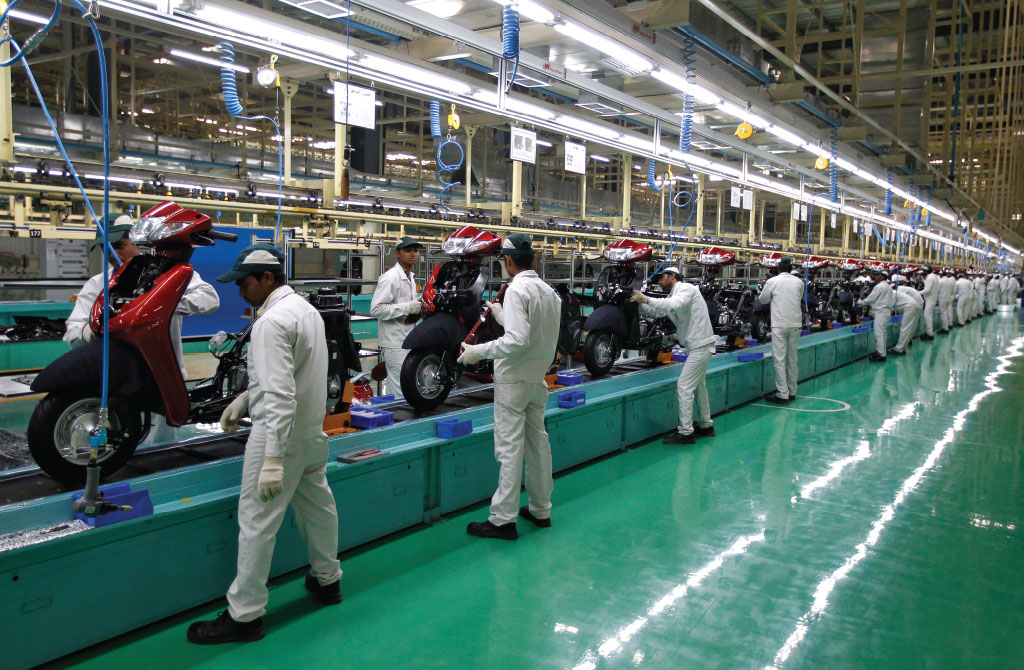
Old barriers slow down — but can’t stop — new ways of thinking.
Can free trade ever be truly free? Do immigration measures threaten long-term prosperity? How do forward-looking cities replace decaying infrastructure? What defines intellectual property in an increasingly fluid world? When should governments invest in new and emerging sectors – and how do we gauge their success? These are the kinds of questions that drive our multidisciplinary studies in innovation and economic growth.
Education
In
Action

Life in the Big Chinese City
In May 2017, Prof. Alana Boland travelled to Chengdu, China, with 10 students from the Dr. David Chu Program in Contemporary Asian Studies and U of T’s Geography & Planning program. The trip was an opportunity to see first-hand the effects of economic development in a city that is trying to balance the interests of a large rural population while building a globally oriented, tech-based economy.
The visiting students gained insights into a range of complex, sometimes contradictory issues, including urban-rural integration, sustainability challenges, changes in the built environment, the impact of new freight infrastructure and transit systems, initiatives to attract foreign direct investment, and the role of public spaces in the life of the city.
MGA Capstone Projects
Guided by Prof. Shiri Breznitz
Branch plants that are vulnerable to relocation (CLIENT: Ontario Ministry of Economic Development and Growth)
When a factory or other business operation relocates, the impact can be dramatic – especially on a smaller community that is already under economic strain. MGA students are identifying leading indicators for vulnerable sites, helping local leaders and provincial officials move proactively to engage with employers before it’s too late.
Innovation hubs (CLIENT: MaRS Solutions Lab)
Recognizing the emergence of vital innovation districts in major cities around the world, the federal government is working to create and nurture dynamic innovation ecosystems in cities and regions across Canada. MGA students are examining the economic and social impacts of these hubs, both within this country and internationally.
Pursuing global market opportunities through innovation (CLIENT: Ontario Ministry of International Trade)
MGA students are investigating how connecting Ontario-based technology innovators to opportunities in foreign markets can help commercialize creative ideas and build fruitful partnerships while boosting trade in goods and services. Areas of focus include artificial intelligence, bioengineering, robotics, renewable energy and the Internet of Things.
Building a Canadian pro bono marketplace (CLIENT: MaRS Social Innovation)
This project is studying how pro bono work – providing services at no cost – could be coordinated through a national marketplace, to the benefit of charities and other social change organizations across Canada. MGA students are examining all facets of the challenge, from federal policy development to private sector collaboration to the contribution of Indigenous communities.
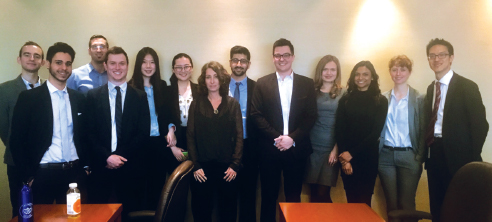
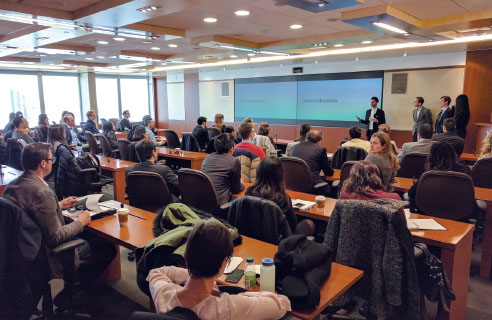
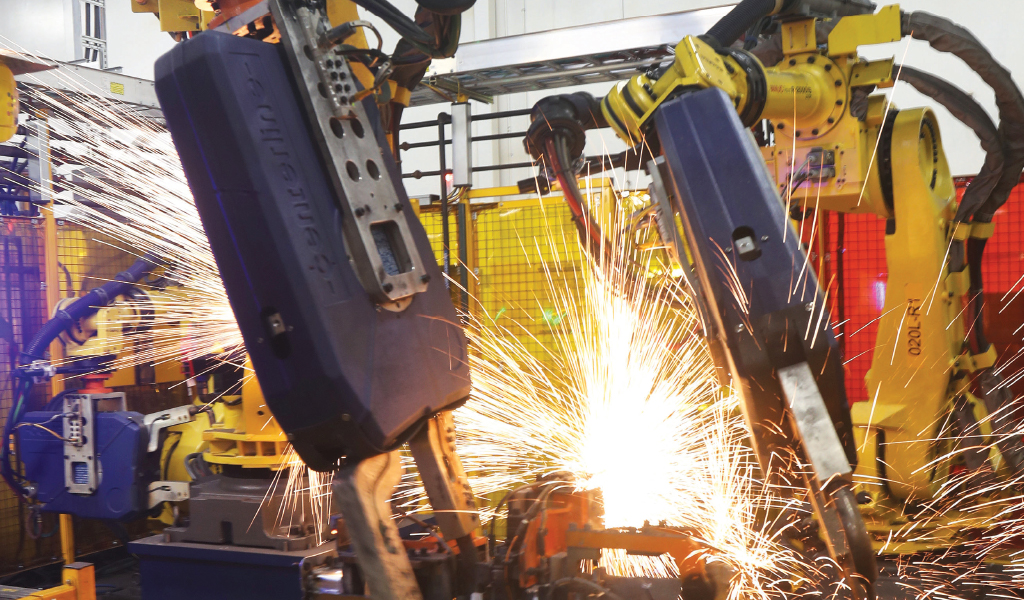
Opportunity’s Still Knocking
Work continued over the past year on Creating Digital Opportunity, a project that brings Munk School researchers together with colleagues from 16 universities and 12 partner organizations, with support from the Social Sciences and Humanities Research Council of Canada. Prof. Elena Goracinova of McMaster University has been collaborating with Prof. David Wolfe, co-director of the Innovation Policy Lab, to study the growing integration of information technology into the automotive industry. They have shared their insights on the industry’s future – captured in a paper entitled “Diversifying the Southern Ontario automotive cluster” – in presentations to automakers and parts manufacturers, in a workshop at the Automotive Policy Research Centre in Ontario and at a conference in Italy focused on building resilience in vehicle manufacturing regions.
Other activities under the banner of Creating Digital Opportunity include work by two PhD students associated with the Innovation Policy Lab – Travis Southin, a recent MGA graduate, and Steven Denney, a doctoral fellow at the Munk School’s Asian Institute – who have researched the high-tech startup environment in Toronto. This past year, Southin and Prof. Wolfe also contributed to TechToronto’s report, “How Technology is Changing Toronto Employment.” And Prof. Wolfe is working with Prof. Zachary Spicer of Brock University and Nicole Goodman, director of the Centre for e-Democracy and a senior associate with the Innovation Policy Lab, on a survey of municipal administrators and citizens gauging attitudes toward government e-services.
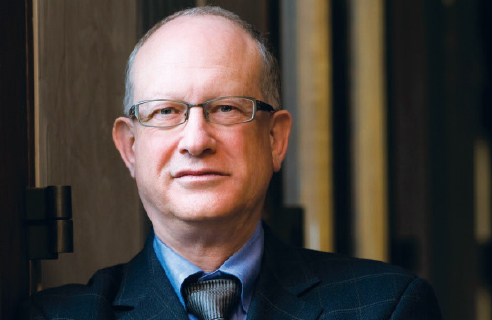
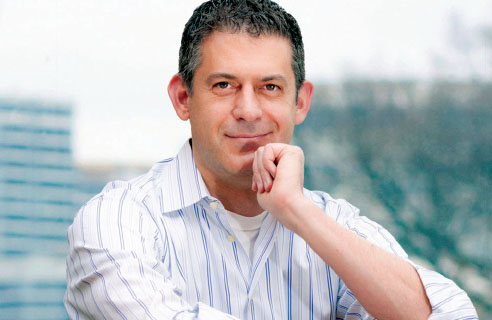
Don’t Give It Away
As Canadian officials and federal leaders discuss both new and existing trade agreements around the globe, Prof. Dan Breznitz, co-director of the Munk School’s Innovation Policy Lab, has been expressing concern about the intellectual property (IP) provisions in many of these deals, and the risk that the government may be “giving away” valuable ideas instead of doing more to help innovators commercialize them at home.
In November 2016, Prof. Breznitz advised the Standing Senate Committee on Foreign Affairs and International Trade on the changing landscape around bilateral, regional and multilateral trade agreements, noting that their evolution into “partnerships” creates more asymmetric relationships in which the protection of IP assets is critical. Moreover, the steady integration of global trade in recent decades has meant that international and domestic issues have become blurred for citizens in democratic countries as they consider the type of society they prefer to live in.
Public
Engagement
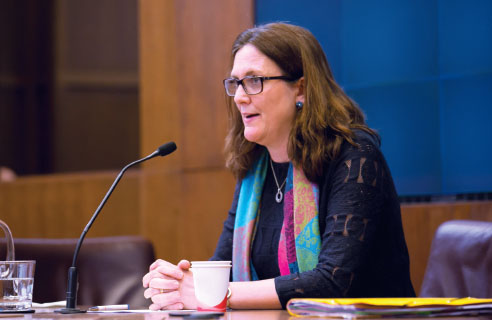
Trade Deadlines
In March 2017, the Munk School hosted an event with Cecilia Malmström, Trade Commissioner of the European Union, who set out the agenda of the world’s largest trading bloc in light of the uncertain fate of the Trans-Pacific Partnership (TPP), and of the proposed agreement between the EU and the U.S. known as TTIP. In pursuing an ambitious program of trade deals, European nations hope to work with major partners to “shape globalization” through effective, transparent, values-based policy. The commissioner also highlighted the benefits of the Comprehensive Economic and Trade Agreement (CETA) between the EU and Canada, which she has described as the most progressive and ambitious deal ever concluded.

